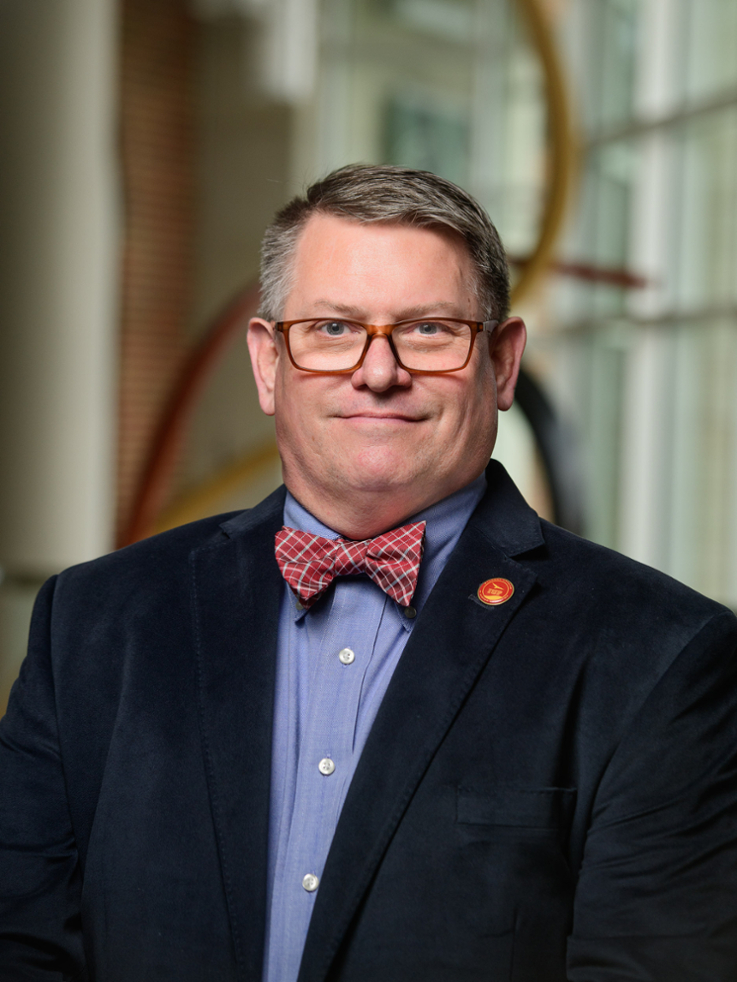
John Lowery
Getting involved as an undergraduate helped show John Lowery what the world of higher education has to offer. He’s now sharing those lessons with his students. Learn more about him in this week’s Meet Our Faculty feature.
What is it about the student affairs in higher education field that initially drew you in—and ultimately keeps you interested?
My introduction to student affairs in higher education came as an undergraduate student at the University of Virginia, where I was very involved in the programming board. I worked with concert promotions and ran the program board’s DJ service. In graduate school, I discovered new functional areas beyond student activities, including student conduct, where I had a graduate assistantship at the University of South Carolina. I also discovered an interest in the history of higher education and student affairs which began at UVA, which has its own rich history.
One of the reasons that I remain so excited to work on a college campus and help prepare student affairs educators is the changing nature of the challenges we face in higher education. Given my interest in the history of higher education, I also see the connections between the challenges of today and our history. For example, the student protests of the 1960s offer helpful insights and context as institutions struggle to effectively manage current student protests related to the war in Gaza.
Why do you enjoy teaching in this discipline?
I sincerely enjoy working with students who are preparing to work on college campuses. I also value their excitement to bring their own experiences as undergraduate students and from their assistantship experiences into the classroom as they engage with the material. There is also a clear connection between my teaching, my research, and my service on campus and to professional organizations.
What advice would you give students about how to succeed in college?
- IUP has a variety of resources to support students academically, from tutoring services to the writing center. Take advantage of them. A key difference between high school and college is that you need to seek out and use these resources.
- Find a way to become involved on campus—join a student organization, become active in student government, or play a club sport. Your involvement can support your success in college, not distract you from it.
- Find a community on campus where you belong—whether it is your major, your residence hall, a student organization, or a sorority. A sense of belonging is a vital part of student success.
- If you do not follow any other advice, always go to class. It took me far longer to heed this last piece of advice than I would like to admit.
Tell us something your students might not know about you.
While an undergraduate student at UVA, one of my most significant cocurricular activities was working with the student concert committee, which coordinated concerts in a variety of venues around campus, from a 1,000-seat theater for jazz and comedy shows to the university’s basketball arena.
I continue to attend a number of concerts each year, especially since the pandemic. Several of my favorite local venues are the Palace in Greensburg, where I recently saw Joe Jackson; Mr. Smalls in Millvale, where I saw They Might Be Giants in May; and the City Winery in the Strip District, where I saw comedian Leah Rudick.